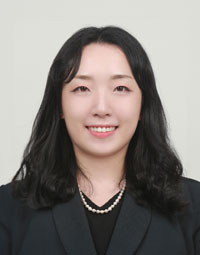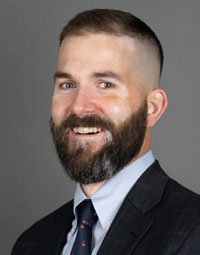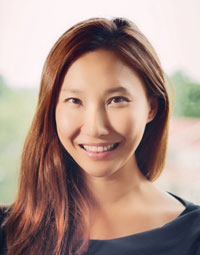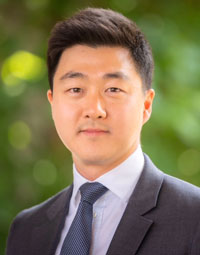![]()
What motivates interest among the South Korean population and national security expert community in the potential development of an indigenous nuclear deterrent? How likely is Seoul to go in this direction? And if it does, what are the costs, benefits, and implications for its economy, the US-Korea Alliance, the region, and the nonproliferation regime? Dr. Clint Work, Korea Economic Institute of America (KEI), Dr. Lami Kim, College of Security Studies at the Daniel K. Inouye Asia-Pacific Center for Security Studies, Dr. Bee Yun Jo, Korea Institute for Defense Analyses, and Dr. Hyun-Binn Cho, The College of New Jersey, discuss with Korea Society policy director Jonathan Corrado and program officer Chelsie Alexandre.
The South Korea Nuclear Debate
Tuesday, August 22, 2023 | 8 PM (EDT)
The Korea Society
350 Madison Avenue, 24th Floor
New York, NY 10017
About the Speakers:
 |
|
Dr. Bee Yun Jo is Associate Research Fellow at the Center for Security and Strategy (defense strategy division), Korea Institute for Defense Analyses (KIDA). Before joining KIDA in 2020, she was Research Professor at Institute of International Affairs(IIA), Seoul National University, and full-time lecturer at East Asia International College(EIC), Yonsei University. Her research focuses on South Korea’s deterrence and defense strategy, particularly on ROK-US extended deterrence, US’s nuclear strategy, and alliance and armament in Northeast Asia. Her recent publications include US's Low-yield Nuclear Weapons and Extended Deterrence on the Korean Peninsula(Seoul: KIDA, 2021), “Plan B for Non-Nuclear States in East Asia: Debating on Nuclear Latency as Means for Potential Deterrence”(National Strategy, Vol. 27, No. 4, 2021), and “The Nukes We Need: Retrofitting American Extended Deterrent”(Journal of Peace and Unification, 2022). She is evaluation committee member of ROK Ministry of Foreign Affairs(MOFA), advisory committee member of Department of Arms Control and Nonproliferation, MOFA, and nonresident senior fellow at the Atlantic Council’s Indo-Pacific Security Initiative. She is also editorial board member of the Korean Political Science Association and member of planning board of Korean Association for Political and Diplomatic History. She holds Bachelor of Fine Arts, with honors, from Rhode Island School of Design (RISD). She received M.A.(Valedictorian) and Ph.D. in International Studies from Graduate School of International Studies(GSIS), Seoul National University. She can be reached at This email address is being protected from spambots. You need JavaScript enabled to view it.. |
 |
|
Dr. Clint Work is a Fellow and Director of Academic Affairs at the Korea Economic Institute of America (KEI). In addition to his work on KEI’s publications and publication-related programs, Clint leads KEI’s University Outreach and conducts research, writing, and public engagement focused on US-Korea relations. Before joining KEI, Clint served as a Fellow in the Henry L. Stimson Center’s 38 North Program from 2020-2022, where he focused on issues related to US-ROK alliance transformation, led Congressional engagement about peace and security on the Korean Peninsula, and organized and moderated a military working group centered on North Korea’s evolving “checkerboard” threat. He also worked with a broad range of universities and state and local organizations throughout the country to foster public engagement on US-Korea relations. Prior to joining Stimson, Dr. Work was an assistant professor at the University of Utah’s Asia Campus in South Korea and the regular foreign policy writer for The Diplomat Magazine’s Koreas page. He holds a Doctorate in International Studies from the University of Washington and a Master’s in International Relations from the University of Chicago, and his work focuses on the Korean Peninsula, US-Korean relations, East Asia, and US foreign policy. He is currently writing on the history and evolution of the US force presence on the Korean Peninsula and US-ROK alliance transformation in the post-Cold War era. In addition to his academic publications, he has written extensively for popular media, including the Washington Post, Foreign Policy, The Diplomat Magazine, War on the Rocks, The National Interest, 38 North, and Sino-NK. He regularly provides commentary to U.S. and foreign media outlets, such as The Economist, Time Magazine, NPR, and Arirang News. |
 |
|
Dr. Lami Kim is a Professor at the College of Security Studies at the Daniel K. Inouye Asia-Pacific Center for Security Studies, a U.S. Department of Defense institute based in Honolulu, Hawaii. She is also serving as a Nonresident Visiting Scholar at George Washington University’s Elliot School of International Affairs, a member of the Project on Nuclear Issues Mid-career Cadre at the Center for Strategic and International Studies (CSIS), a Mansfield-Luce Asia Scholar, and an Adjunct Fellow at Pacific Forum. Her research interests are the intersection between international security and technology, including nuclear and emerging technologies, and security issues in East Asia. Her work has appeared in The Washington Quarterly, Global Governance, Bulletin of the Atomic Scientists, War on the Rocks, Belfer Center for Science and International Affairs, the Woodrow Wilson International Center for Scholars, the National Bureau of Asian Research, Routledge, the National Interest, the Diplomat and CSIS. Until June 2023, she served as Associate Professor and Director of the Asian Studies Program at the U.S. Army War College, where she also serves as Director of the Cyber Command Strategy Fundamentals Program. Previously, she served as a research fellow at Harvard’s Belfer Center, the Wilson Center, Pacific Forum, and the Stimson Center; as a Nuclear Scholar, a US-Korea NextGen Scholar, and a Security and Statecraft Fellow at CSIS; as a Visiting Fellow at Seoul National University and the East-West Center; and also as a South Korean diplomat. She has taught at Harvard University, Boston College, and the University of Hong Kong. She holds a PhD degree from the Fletcher School of Law and Diplomacy at Tufts University and a Master’s degree from Harvard University. |
 |
|
Dr. Hyun-Binn Cho is an Assistant Professor of Political Science and International Studies at The College of New Jersey. Previously, he was a Postdoctoral Research Fellow at Harvard University’s Belfer Center for Science and International Affairs at the John F. Kennedy School of Government, and a Stanton Nuclear Security Postdoctoral Fellow at Stanford University’s Center for International Security and Cooperation. His research interests are in international security, nuclear security, and security in the Asia-Pacific, with a regional focus on China and North Korea. His work is published or forthcoming in Security Studies, The Washington Quarterly, International Relations of the Asia-Pacific, Bulletin of the Atomic Scientists, and The National Interest. He received a Ph.D. in Political Science from the University of Pennsylvania, an M.A. in Political Science from Columbia University, an M.A. in International Relations from Seoul National University, and a B.Sc. in Government and Economics from the London School of Economics and Political Science. He is from Seoul, South Korea. |







